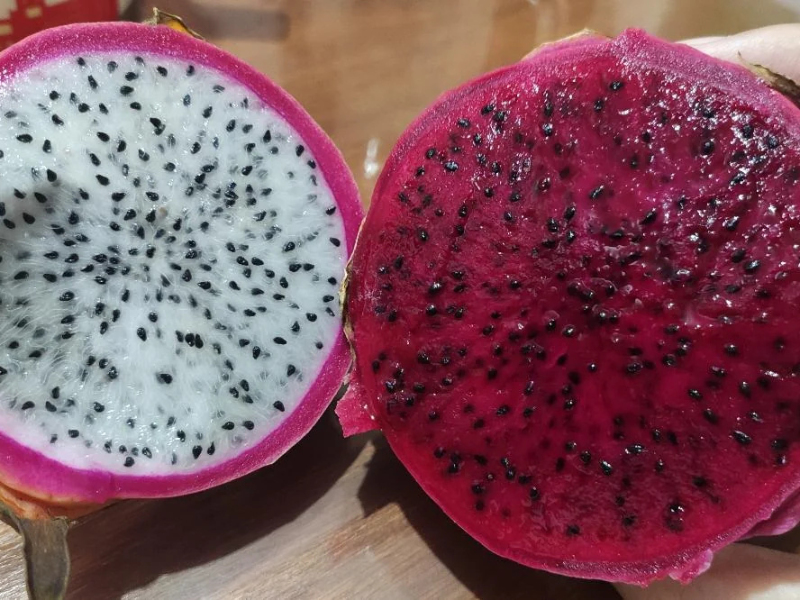Advertisement
6. Dragon Fruit vs. Grapes

Advertisement
Fresh, dried (as raisins), or as juice and wine, grapes are a flexible fruit appreciated both fresh. Their great antioxidant concentration and several health advantages are well known. Comparatively to these little, luscious fruits, how does dragon fruit stand?**Nutritional Comparison:** - Antioxidants Antioxidants abound in grapes, especially resveratrol found in red and purple grape skin. Resveratrol has anti-inflammatory and heart-protective effects, according studies. Along with antioxidants, dragon fruit boasts carotenoids and betalains. Both fruits help to lower oxidative stress and advance general wellness.Vitamin C: ** Both fruits are decent providers of vitamin C. While grapes have about 10.8 mg of vitamin C per 100 grammes, dragon fruit offers almost 9% of the daily advised consumption per 100 grammes. Both immune system performance and skin condition depend on vitamin C.Both fruits have dietary fibre, but dragon fruit has more—about 3 grammes per 100 grams—than grapes, which have roughly 0.9 grammes per 100 grammes. Maintaining normal bowel motions and gut health depend on fibre.**Calorie Count:** With roughly 69 calories per 100 grammes, grapes have somewhat more calories than dragon fruit—50 calories per 100 grammes. Both fruits are low-calorie choices fit for control of weight.**Health Benefits**Among their heart-healthy effects, grapes are well-known for increasing blood flow, lowering blood pressure, and shielding against oxidative stress. Complementing each other with its immune-boosting and digestive-supporting qualities, dragon fruit is Both fruits are great alternatives for a diet high in nutrients, and including both will offer a broad spectrum of health advantages.
